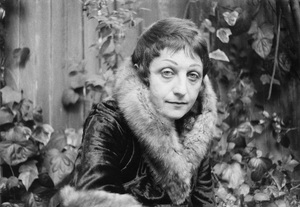The un-Beatable ruth weiss
Abstract:
The Art History course on the Beat Aesthetic offered by Art Perry at Emily Carr University of Art and Design has generated strong interests in me that could only be appeased through complementary research. As the course developed I grew more curious about the women of the Beat generation, which, were rarely talked about and badly represented, in the patriarchal society of the 60s. Early in my research process I stumbled on the work of ruth weiss, a German born poet, performer, playwright and artist, often associated with the Beat Generation. Fond of weiss’s work, I related to her life story and connected with her poems. However, to my surprise neither of the required books for the class — written by Ann Charters, a Professor of American literature and highly respected for her focus on the Beat writers — mentioned weiss’ work. Charters is the editor of numerous volumes on Beat generation and 1960s American literature including the required readings for the class, The Portable Beat Reader and The Portable Sixties Reader which I have focused my attention on for this argument. In this essay, I will try to explore the possible reasons for Charters’ exclusion of the innovations and influences of ruth weiss on the Beat Generation. My research allowed for a deeper understanding of the challenges faced by literary women of that generation while drawing parallels with the life and work of weiss. My desire is to understand what one needs to be recognized as “Beat” and, as such to receive the support of an important scholar such as Ann Charters.
Read complete paper here

